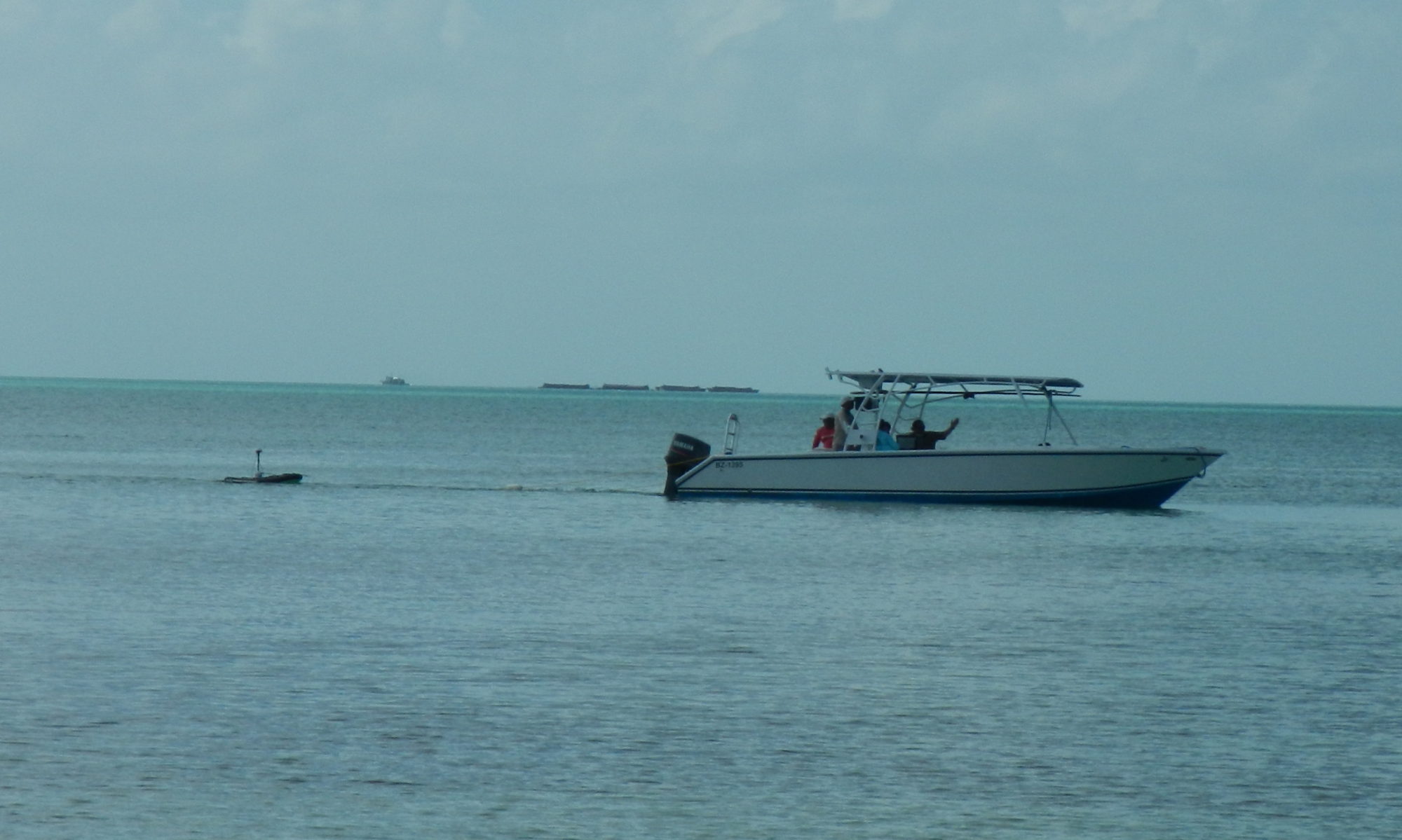BCSA was founded by a group of local and international bio-diversity scientists and coastal engineers who began working together in Belize in 2015 for a Restorative Island project in Chetumal Bay. Together we conducted extensive field science, both marine and terrestrial, for over two years on Blackadore Caye, several surrounding cayes, and in the bajos area waters to prepare the Restorative Island project EIA for the Belize Department Of Environment (DOE).
The BCSA science team worked with the National Protected Area Managers within our project zone of influence to include HolChan, Bacalar Chico, Sarteneja Alliance, & Corozal Bay. The BCSA science team provided our water quality equipment and a trained operator in support of CZMA and marine reserve objectives to gather data on targeted areas of water quality conditions that were of interest or concern.
The lack of baseline data used in determining the extent of environmental degradation in the bay and on the project Caye demanded a complete Flora & Fauna inventory of the project area. Marine underwater suveys (AGGRA & SMP hybrid methodology) alongwith water quality and hydrographic surveys were performed for over 2 years and continue today.
The BCSA bio-diversity science solution involved building coastal resilience through organic hardening of the island coastline with underwater hybrid Rama structures. Contructed of local materials with low impact construction methodology the hybrid rama structures planted with red mangrove for reforestation of negatively impacted coastal zones.The mature hybrid mangrove rama become a layer of living coastal protection, absorbing hydraulic wave energy, filtering the water, growing fish habitat in the prop roots, and generally enhancing the marine biodiversity of the surrounding marine environment.
As a result of our extensive field sciences in Belize, it soon became evident that the environmental issues facing this one Caye were indicative of the entire Belize coastal zone.
Since there were no functioning tide guages in the Belize Northern Marine Coastal Region; Chetumal, MX was used for reference back check.
We train local Belizean scientists and boatman in the operation and maintenance of all the marine survey and water quality equipment for the BCSA science team.
The BCSA survey team is trained to the NOAA standard for Understanding Tides and the Comutational Techniques for Tidal Datum’s from NOAA publications. Tide boards were established on Blackadore Caye, St Georges Caye and in San Pedro, Ambergis Caye to capture & record tide data.
The marine water quality & hydrographic survey equipment packages used for the Restorative Island project were philanthropically endowed to the local BCSA science team by Restorative Islands to facilitate continued research and marine data collection throughout Belize.
The BCSA Hydrographic Survey team has continued to collect survey data in the Northern Marine Region of Belize in support of requests for survey of high priority areas.The local BCSA hydro survey team has primarily focused on the marine areas East & West of San Pedro, the San Pedro lagoon channel from the Port of San Pedro thru the inner lagoon to the International Dock & out thru the mangrove channel to Boca Del Rio. The survey team recently commenced work around St Georges Caye in support of manatee research and doctorate thesis.
We continue to explore opportunities to utilize our local science talent coupled with our marine & water quality equipment assets in support of government, NGO or private coastal zone research or restoration projects.
The open exchange of coastal data is imperative to Belize, so that Government & NGO stakeholders can effectively consider the full range of coastal resilience options including structual engineered coasta hardening as well as natural and nature based hybrid structures to determine the appropriate action for each impacted location.
The primary environmental issues for Belize and all coastal communities are sea level rise coupled with more frequent and greater severity storms. Coastal Erosion was a chronic issue that has become an Acute issue for all coastal communities, especially ones facing rapid development with the ensuing coastal deforestation.
The proper ecological balance must be managed by scientifically informed Coastal Coastal Zone Management in order to allow sustainable develpment to promote the economics of tourism while also protecting the natural resources and enhancing coastal resilience of the same coastal region.

